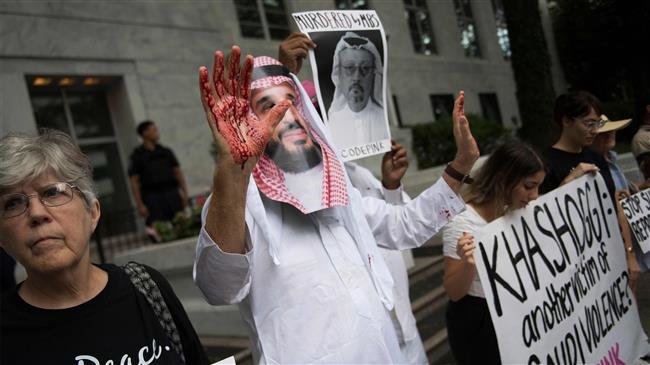American weapons manufacturers have expressed concerns to the White House that Congress might block further arms deals with Saudi Arabia over the suspected murder of Saudi journalist Jamal Khashoggi in Turkey, according to reports.
Democrats and some Republicans have indicated that the Khashoggi case had created resistance in Congress to proposed weapons sales to the Saudis that could be worth tens of billions of dollars.
The most direct call for punishing Riyadh came from Republican Senator Rand Paul, who tweeted on Thursday that the Saudi killings of dissidents and opposition journalists would not stop unless the US stopped “arming and assisting” the regime.
The Saudis will keep killing civilians and journalists as long as we keep arming and assisting them. The President should immediately halt arms sales and military support to Saudi Arabia.
— Senator Rand Paul (@RandPaul) October 11, 2018
Even before that, some lawmakers had placed “holds” on at least four military deals with Saudi Arabia over the kingdom’s military aggression in Yemen.
“They've had holds on major systems for months for Yemen issues,” a senior administration official told Reuters on condition of anonymity. “This makes it more likely they'll expand holds to include systems that aren't necessarily controversial by themselves. It's a major concern.”
The official did not name the companies that had contacted the administration over their Saudi deals.
Lockheed Martin Corp and Raytheon Co have been the most active arms manufacturers with potential sales to Saudi Arabia since President Donald Trump announced a $110 billion package of arms deals with Riyadh last year.
Since then, about $19 billion in arms deals to the Saudis have been officially notified to Congress, including the THAAD anti-missile system that could cost as much as $15 billion, according to government records.
One lobbyist for a weapons company said worries about a potential across-the-board blockage of arms sales by Congress had surfaced in recent days.
However, President Trump dispelled any sense that his administration might seek to impose serious consequences on Saudi Arabia.
Trump said US investigators were looking into Khashoggi’s disappearance, but made clear that Washington would not stop lucrative arms deals with Riyadh.
“I don’t like stopping massive amounts of money that’s being poured into our country – they are spending $110 billion on military equipment and on things that create jobs for this country.”
“What good does that do us?” Trump asked, speaking to reporters in the Oval Office on Thursday. “This took place in Turkey and to the best of our knowledge, Khashoggi is not a United States citizen,” he added, brushing aside the fact that the journalist lived in the US.
There is widespread speculation – especially among Turkish officials — that Khashoggi was murdered by as many as 15 Saudi operatives who took him into the consulate. The journalist’s dismembered body is also reported to have been flown back to Saudi Arabia in two jets.
Riyadh denies being behind Khashoggi’s disappearance, but it has so far failed to provide any evidence.


